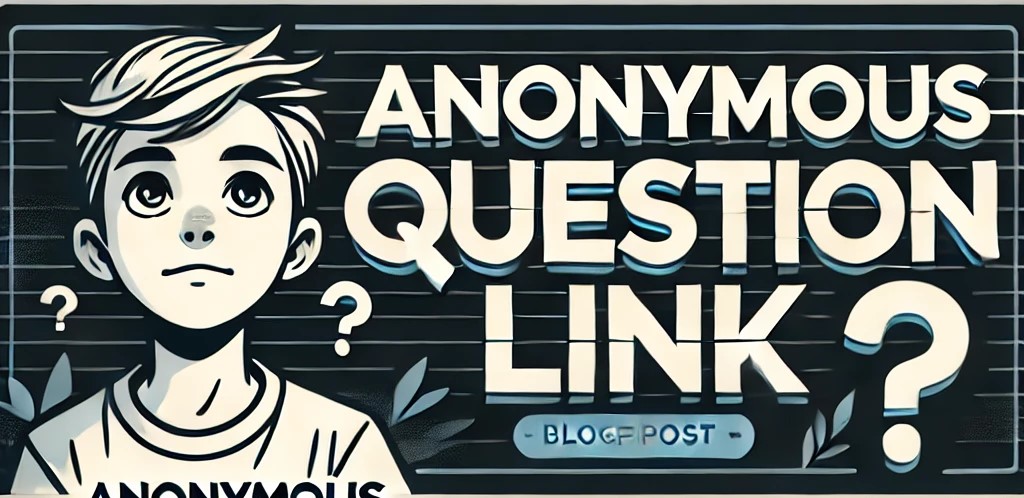Anonymous question links are gaining popularity for letting people ask and answer questions without revealing their identity. These links help build trust, open conversations, and encourage honest feedback without fear of judgment. Many users, from social media influencers to students, use these links for various reasons.
In this article, we will explore how to create an anonymous question link, why it’s useful, and what to keep in mind when using one.
How to Create an Anonymous Question Link
Creating an anonymous question link is simple. Many platforms offer this service with easy-to-follow steps. You start by choosing a trusted platform or app that provides anonymous question services. Popular examples include NGL and Saraha.
– Sign up or create an account to keep your identity private.
– Follow the platform’s instructions to create your anonymous link.
– Copy and share the link on your social media or blog.

Finally, share this link on your social media, blog, or wherever you wish to receive anonymous questions. Make sure to inform your audience that the link is for anonymous use, encouraging them to ask freely.
A great way to create an anonymous question link is by using tools like Secret Message by ON4T. It allows users to receive questions without revealing identities, making it perfect for honest feedback and open conversations.
Why Use an Anonymous Question Link?
Using anonymous question links has multiple benefits. They allow open communication by removing the fear of being judged. This is especially helpful in educational settings or online forums where people hesitate to ask questions.
Anonymous links can also be a tool for feedback. Teachers, creators, or team leaders use these links to receive honest opinions that improve their work. The anonymous nature helps people provide genuine feedback without feeling pressured.
Moreover, anonymous links create interactive spaces online. They encourage conversations that might not happen otherwise. People feel safe sharing their thoughts, leading to better engagement and community growth.
To make your anonymous question link even more accessible, you can convert it into a QR code using the QR Code Generator by ON4T. This makes it easy to share on printed materials, presentations, or social media for broader engagement.
Tips for Safely Using Anonymous Question Links
While these links are useful, safety should be a priority. Ensure you choose a reputable platform that protects user data and maintains anonymity. Reading user reviews and terms of service is a good first step.
– Choose a platform with strong user data protection.
– Do not share personal information in responses.
– Monitor and block any inappropriate content.
Avoid sharing any personal information in responses. This helps maintain your privacy and keeps interactions professional. Respond to questions thoughtfully but without sharing too much detail about yourself.
Over 70% of social media users have interacted with anonymous question tools at least once, enhancing online engagement.
FAQs:
What is an anonymous question link?
An anonymous question link allows people to send or receive questions without revealing their identity.
Are anonymous question links safe?
Yes, as long as you choose a trusted platform and use it responsibly.
Can I use anonymous question links on social media?
Yes, you can share these links on various social media platforms for interaction.
What platforms provide anonymous question links?
Popular platforms include NGL, Saraha, and similar services that prioritize privacy.
Conclusion:
Anonymous question links make it easier to create an open and safe space for communication. They encourage people to ask questions and share feedback without worrying about being judged. Using these links responsibly and with care can help build trust and increase interaction.
Consider the safety tips mentioned to keep your experience smooth. With the right approach, anonymous question links can be a valuable tool for personal or professional use.
For more interesting quizzes and tools visit On4t.com.